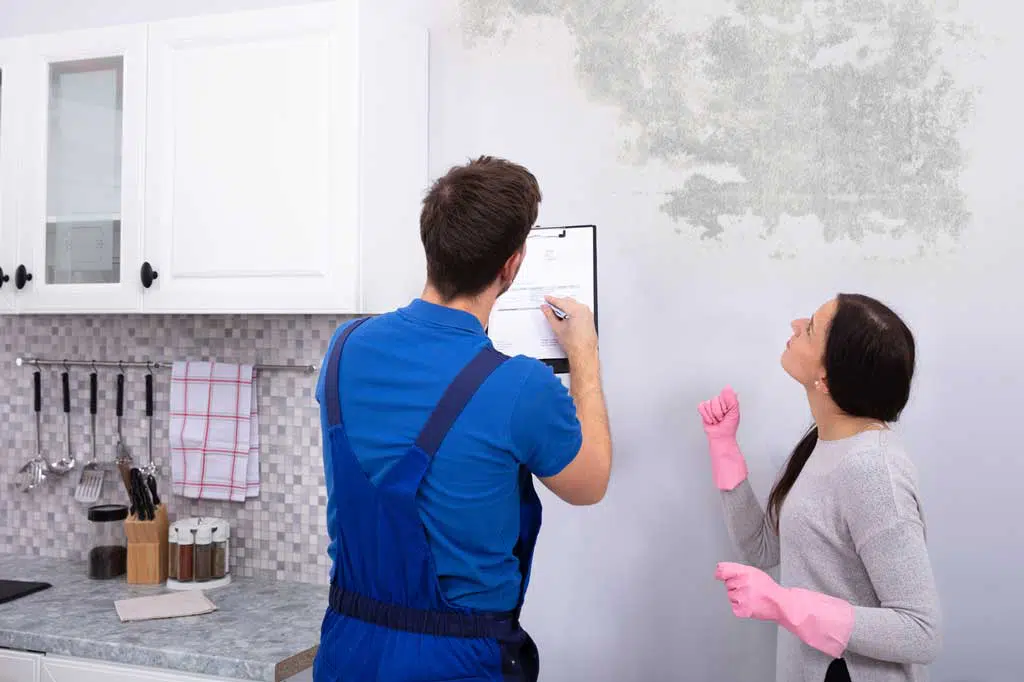Introduction
When it comes to the safety and well-being of your home, one silent intruder that often goes unnoticed is mold. Mold can thrive in various areas of your house, including damp basements, leaky roofs, and poorly ventilated bathrooms. Apart from causing structural damage, mold can also lead to serious health issues for you and your family. This is where a mold inspector comes into the picture. In this comprehensive guide, we will delve into the world of mold inspection, exploring the vital role these professionals play in identifying, preventing, and resolving mold-related problems.
Mold Inspector: Defenders Against Hidden Perils
What Does a Mold Inspector Do?
A mold inspector is a certified professional who specializes in identifying, testing, and assessing mold growth within residential and commercial properties. These experts possess the knowledge and skills necessary to detect the presence of mold, determine the causes of its growth, and recommend appropriate remediation measures.

The Significance of Mold Inspections
- Protecting Your Health and Well-being
Mold can release harmful spores into the air, leading to respiratory issues, allergic reactions, and even severe infections. Engaging a mold inspector helps ensure that your living environment remains free from these health hazards.
- Identifying Hidden Mold
Mold often thrives in concealed areas, such as behind walls or underneath flooring. A professional mold inspector has the expertise to identify these hidden mold colonies through comprehensive inspections and advanced testing methods.
- Preventing Structural Damage
Persistent mold growth can compromise the structural integrity of your home. By conducting regular inspections, a mold inspector can detect mold at its early stages and recommend necessary actions to prevent costly repairs in the future.
- Preserving Indoor Air Quality
Mold infestations can have a detrimental effect on the indoor air quality of your home. A mold inspector can assess the extent of mold contamination, determine the quality of air, and suggest appropriate remediation procedures to restore a healthy living environment.
Mold Inspector: Your Ultimate Resource for Mold-related Concerns
A qualified mold inspector possesses a comprehensive understanding of mold growth, its causes, and the best practices for its remediation. These professionals offer a range of specialized services to safeguard your home and ensure your peace of mind.
Mold Inspections: The Initial Step to a Mold-Free Home
A thorough mold inspection involves a meticulous assessment of your property, both visually and through advanced testing techniques. The mold inspector will scrutinize areas susceptible to mold growth, such as basements, attics, crawl spaces, bathrooms, and kitchens. By conducting air sampling, surface sampling, and moisture testing, they can determine the presence of mold, identify the specific types of mold present, and pinpoint the root causes of its growth.
Mold Testing: Unveiling the Mystery
In certain cases, additional mold testing may be required to obtain a more accurate picture of the mold infestation. The mold inspector may collect samples for laboratory analysis, which can provide insights into the concentration and species of mold present. This information is crucial for developing an effective mold remediation plan.
Mold Remediation: Eliminating the Threat
Once the mold inspector has identified the extent and severity of the mold problem, they can recommend a customized mold remediation plan. This plan may involve steps such as moisture control,
Mold Inspector: Your Ultimate Resource for Mold-related Concerns
A qualified mold inspector possesses a comprehensive understanding of mold growth, its causes, and the best practices for its remediation. These professionals offer a range of specialized services to safeguard your home and ensure your peace of mind.
Mold Inspections: The Initial Step to a Mold-Free Home
A thorough mold inspection involves a meticulous assessment of your property, both visually and through advanced testing techniques. The mold inspector will scrutinize areas susceptible to mold growth, such as basements, attics, crawl spaces, bathrooms, and kitchens. By conducting air sampling, surface sampling, and moisture testing, they can determine the presence of mold, identify the specific types of mold present, and pinpoint the root causes of its growth.
Mold Testing: Unveiling the Mystery
In certain cases, additional mold testing may be required to obtain a more accurate picture of the mold infestation. The mold inspector may collect samples for laboratory analysis, which can provide insights into the concentration and species of mold present. This information is crucial for developing an effective mold remediation plan.
Mold Remediation: Eliminating the Threat
Once the mold inspector has identified the extent and severity of the mold problem, they can recommend a customized mold remediation plan. This plan may involve steps such as moisture control, repairs to plumbing or ventilation systems, removal of affected materials, and the use of specialized cleaning techniques. The mold inspector will ensure that the remediation process follows industry guidelines and that all mold colonies are effectively eradicated.
Prevention Strategies: Keeping Mold at Bay
A mold inspector can also provide valuable guidance on preventive measures to minimize the risk of future mold growth. These strategies may include improving ventilation, controlling humidity levels, addressing water leaks promptly, and implementing regular inspections and maintenance. By adopting these preventive measures, you can significantly reduce the likelihood of mold recurrence.

FAQs about Mold Inspection
1. What are the signs that indicate I might need a mold inspection?
If you notice a musty odor, experience persistent allergic symptoms, or observe visible mold growth in your home, it is advisable to schedule a mold inspection. Additionally, any water damage, leaks, or recent flooding events increase the likelihood of mold growth, necessitating a professional assessment.
2. How long does a mold inspection typically take?
The duration of a mold inspection depends on various factors, including the size of the property and the extent of the inspection required. On average, a comprehensive mold inspection can take anywhere from two to six hours.
3. Are mold inspections only necessary when buying or selling a property?
While mold inspections are indeed essential during real estate transactions, they are not limited to those scenarios. Regular mold inspections are recommended to ensure the ongoing safety and well-being of your home and its occupants.
4. Can I perform a mold inspection myself?
While there are DIY mold testing kits available, they are often not as accurate or reliable as a professional inspection. Mold inspectors possess the expertise and specialized equipment necessary to detect hidden mold, assess its severity, and provide appropriate recommendations.
5. How do I choose the right mold inspector?
When selecting a mold inspector, it is crucial to consider their qualifications, experience, certifications, and reputation. Seek referrals, read reviews, and request quotes from multiple professionals to make an informed decision.
6. How much does a mold inspection cost?
The cost of a mold inspection can vary depending on factors such as the size of the property, the extent of the inspection required, and the location. On average, mold inspections can range from $200 to $600.
Conclusion
Mold growth can pose significant risks to both your home and your health. By enlisting the services of a qualified mold inspector, you can proactively address mold-related concerns and ensure the safety of your living environment. These professionals have the expertise to identify, test, and assess mold growth, as well as develop effective remediation plans tailored to your specific situation.
Remember, mold inspections are not only necessary during real estate transactions but also for regular maintenance and peace of mind. By prioritizing mold prevention and addressing any signs of mold promptly, you can protect your home from the hidden perils of mold and maintain a healthy living environment for you and your loved ones.


